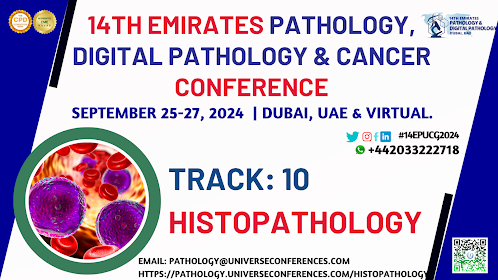Understanding Computational Chemistry: A Modern Approach to Molecule Magic
In the ever-evolving landscape of science, computational chemistry stands out as a pivotal tool that bridges the gap between theoretical chemistry and practical applications. This field utilizes computer simulations to assist in solving complex chemical problems, providing insights that are often unattainable through traditional experimental methods alone. Whether you're a seasoned chemist, a budding student, or simply a curious mind, understanding the basics and applications of computational chemistry can be both enlightening and inspiring. Let's dive into the fascinating world of computational chemistry and explore its impact on modern science.
What is Computational Chemistry?Computational chemistry involves the use of computer algorithms and
simulations to study the structures, properties, and reactions of molecules. By
employing methods rooted in quantum mechanics and thermodynamics, computational
chemists can predict molecular behavior, design new compounds, and explore
chemical reactions with high precision.
The Foundations: Key Methods in
Computational Chemistry
- Quantum
Mechanics (QM):
- Ab Initio
Methods: These methods are based on first principles, relying
solely on fundamental physical constants. Examples include Hartree-Fock
(HF) and post-Hartree-Fock methods like Configuration Interaction (CI)
and Coupled Cluster (CC).
- Density
Functional Theory (DFT): A more computationally
efficient alternative to ab initio methods, DFT approximates electron
density rather than wavefunctions, making it suitable for larger systems.
- Molecular
Mechanics (MM):
- Force Fields: MM uses
classical mechanics to model molecular systems. Force fields like AMBER,
CHARMM, and GROMOS define the potential energy of a system based on
parameters derived from experimental data and high-level QM calculations.
- Molecular
Dynamics (MD):
- Simulations: MD simulates
the movement of atoms and molecules over time, providing dynamic
information about molecular systems. It's widely used in studying
biomolecules like proteins and nucleic acids.
- Monte Carlo
(MC) Simulations:
- Random
Sampling: MC methods use statistical sampling to explore the
energy landscape of a molecular system, often used in the study of phase
transitions and thermodynamic properties.
Applications: Where
Computational Chemistry Shines
- Drug
Discovery and Design:
- Computational
chemistry plays a crucial role in the pharmaceutical industry. It allows
for the virtual screening of drug candidates, optimization of
drug-receptor interactions, and prediction of pharmacokinetic properties,
accelerating the drug discovery process.
- Material
Science:
- Designing new
materials with specific properties, such as high conductivity or
exceptional strength, is possible with computational methods. These
simulations help predict material behavior before synthesis, saving time
and resources.
- Catalysis:
- Understanding
catalytic mechanisms at the molecular level can lead to the development
of more efficient catalysts. Computational studies provide insights into
reaction pathways and intermediates that are often challenging to observe
experimentally.
- Environmental
Chemistry:
- Predicting the
fate of pollutants, designing greener chemical processes, and
understanding atmospheric chemistry are areas where computational methods
contribute significantly to environmental sustainability.
Challenges
and Future Directions
Despite its numerous advantages, computational chemistry faces challenges
such as the need for high computational power and the accuracy of
approximations used in simulations. However, advancements in algorithms,
software, and hardware, along with the integration of machine learning
techniques, are continually pushing the boundaries of what computational
chemistry can achieve.
Computational chemistry is a transformative field that complements
experimental chemistry, providing deep insights and enhancing our ability to
understand and manipulate the molecular world. As technology advances, its
applications will only expand, driving innovation and discovery across various
scientific disciplines. Whether it's designing a life-saving drug or creating
sustainable materials, computational chemistry is at the forefront of
scientific progress, proving that with the right tools, the magic of molecules
is within our grasp.
===========================
Conference
Name: 14th
Emirates Pathology, Digital Pathology & Cancer Conference
Short
Name: 14EPUCG2024
Dates:
December 17-19, 2024
Venue:
Holiday Inn Dubai, UAE & Online
Email: pathology@universeconferences.com | Call
Us: +1 (207) 707-7298
Visit: https://pathology.universeconferences.com/
Submit
here: https://pathology.universeconferences.com/submit-abstract/
Register
here: https://pathology.universeconferences.com/registration/
Online Registration here: https://pathology.universeconferences.com/virtual-registration/
WhatsApp
us at: https://wa.me/442033222718?text=
#ComputationalChemistry #QuantumMechanics
#MolecularMechanics #MolecularDynamics #MonteCarloSimulations #DrugDiscovery
#MaterialScience #Catalysis #EnvironmentalChemistry #PathologyTechnology #AIMedTech
#SmartPathology #AIinMedicine #DigitalHealth #AIAlgorithms
#MachineLearningInPathology #Telepathology #RemotePathology #DigitalPathology
#VirtualPathology #Telemedicine #PathologyConsultation #Telehealth
#TeleDiagnosis #Pathology #Pathologists #MedicalPathology #ClinicalPathology
#PathologyEducation #DiagnosticPathology #HealthTech #MedTech #DigitalHealth
#HealthInnovation #AIinHealthcare #MachineLearning #Healthcare #Medicine
#MedicalScience #HealthcareTechnology #PatientCare #HealthcareInnovation #MedEd
#MedStudent #PathologyResident #MedicalEducation #ContinuingEducation
#PathologyConference #MedicalConference #HealthcareConference #Networking
#DigitalPathology #AIinHealthcare #AIDiagnostics #PathologyAI #DigitalDiagnosis
#AIPathology #ChemistryInnovation




.png)
Comments
Post a Comment